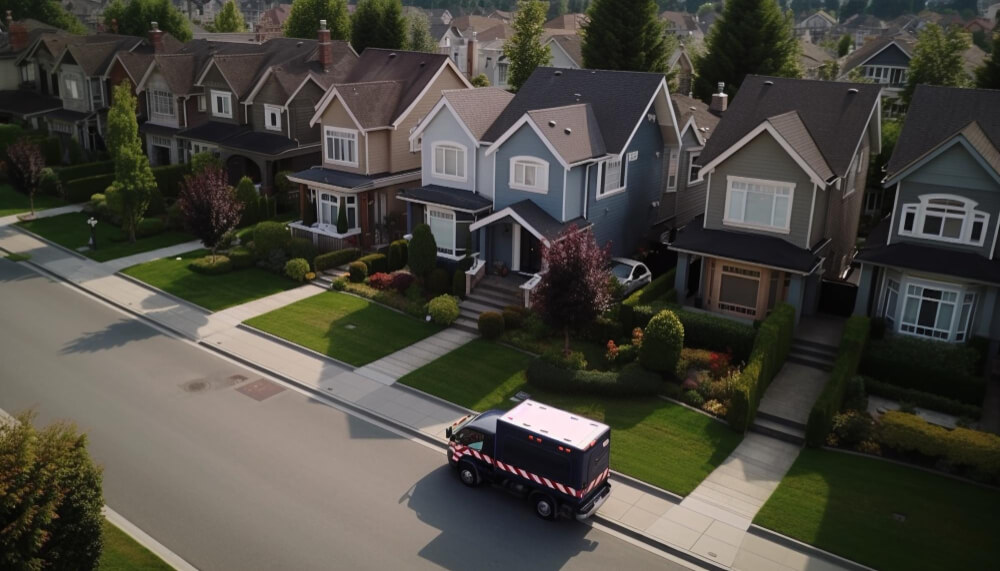Affordable housing is a pressing concern for many Americans. In the pursuit of cost-effective housing solutions, renters often find themselves faced with questions about their rights and responsibilities, including those related to property maintenance.
One common query that arises is, “Are landlords responsible for driveways in affordable housing?”



In this blog, we will delve into this topic to help US residents in the affordable housing sector better understand their rights and responsibilities.
Understanding Affordable Housing
Before we delve into the responsibilities of landlords regarding driveways, it’s important to clarify what affordable housing entails. Affordable housing refers to housing units that are made available to individuals or families with limited financial means. These units are often subject to various regulations, subsidies, and programs designed to make housing more affordable for low and moderate-income households.
Responsibilities of Landlords
The responsibilities of landlords in affordable housing can vary depending on state and local laws, as well as the specific terms outlined in the lease agreement.
Generally, landlords are responsible for maintaining the habitability of the rental property.
This includes ensuring that essential services and structural components of the property are in good working condition.
However, whether or not this extends to driveways can be less clear-cut.
Determining Who is Responsible for Driveways
- Lease Agreement: The lease agreement is the initial point of reference for understanding the duties of landlords concerning driveways.
The lease can contain specific provisions for the upkeep and repair of the driveway.
Often, lease agreements have clauses that hold tenants responsible for small repairs and maintenance.
Tenants must therefore carefully analyze their lease agreement to determine both their own and the landlord’s obligations.
- Local Laws: The obligations of landlords are also influenced by regional laws and ordinances.
To ensure that the property can be accessed safely, certain towns could demand that landlords maintain driveways.
Tenants must thoroughly examine local rules and ordinances to comprehend how they pertain to their particular circumstances.
- Routine Maintenance: When it comes to performing normal driveway maintenance, the most common query people have is “Is the landlord responsible for snow removal?”- the simple answer to this is, that landlords typically have a duty to make sure driveways are clear and safe to use during the winter because snow and ice can pose safety risks, but it’s worth noting that certain rental agreements may specify that tenants are responsible for removing snow from the premises.
Its purpose is to instill a feeling of possession and responsibility in the tenants and to encourage them to be more accountable for the cleanliness and maintenance of the property.
- Repairs and Major Maintenance: Driveway maintenance and repairs responsibility can vary.
It may be stated in certain lease agreements that tenants are accountable for these expenses, while it may be stated in others that the landlord is responsible.
The lease also determines responsibility for damages caused by previous tenants to prevent disputes.
For clarity on this issue, it is necessary to review the lease agreement.
However, the landlord must be aware of his responsibilities for entering a tenant’s house for repairs or maintenance work.
- Communication: Open communication between landlords and tenants is essential to resolve driveway issues.
Tenants are required to give the landlord prompt notice if a driveway needs to be fixed or maintained.
Likewise, landlords ought to fix any issues as soon as possible, depending on the severity of the issue.
How Long Does a Landlord Have to Fix a Driveway Problem?
The most important responsibility of landlords is to approach such reports with utmost receptivity and awareness.
The seriousness of the driveway issue will determine how quickly the landlord should get it fixed.
Minor issues including normal wear and tear like small cracks or minor edge crumbling might be addressed on a non-urgent basis.
Whereas large cracks which can allow water to seep in and damage the base of the driveway need urgent attention and action from the landlord.
What are your rights if the Landlord refuses to repair the driveway?
If a landlord refuses to repair the driveway in US affordable housing, tenants have certain rights depending on the local laws and regulations. Typically, tenants have the right to:
- Request Repairs: Tenants can formally request repairs in writing, specifying the issue with the driveway and the need for repair. This is because you need to have proof, in case you need to take legal action in the future.
- Notify Authorities: If the landlord continues to neglect repairs despite formal requests, tenants may have the right to notify local housing authorities or tenant rights organizations.
- Withhold Rent: Tenants are sometimes permitted to hold back rent until repairs are made, but this must be done carefully and in accordance with local laws to avoid eviction.
- Repair and Deduct: Depending on the state, tenants can hire a professional for repairs and deduct the costs from their rent, as long as they follow specific legal guidelines.
- Legal Action: Tenants may have a right to sue a landlord for not fulfilling their obligations under the lease agreement or local housing code.
Tenants should familiarize themselves with their rights and responsibilities under local housing laws and seek legal advice if necessary to resolve issues with the landlord’s refusal to repair the driveway.
Conclusion
In summary, while landlords generally have a responsibility to ensure the habitability of rental properties, the specifics regarding driveways can differ.
Ultimately, knowledge of your lease terms and local regulations is your best tool for understanding who is responsible for driveway maintenance in your affordable housing situation.
Moreover, the landlord should ensure a clear and transparent lease signing process to avoid conflicts and confusion in the future.
If you want to learn more about affordable housing and fair housing compliance, then explore our website and register for the free webinar training from the experts in the industry.




